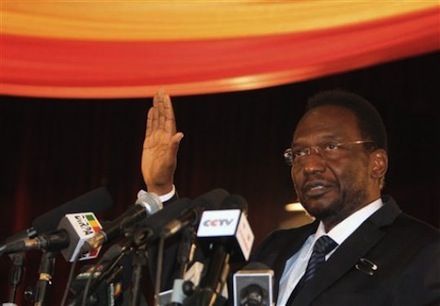Since a mid-March budget standoff when the current government failed to pass its budget by one vote, North Rhine-Westphalia has been (rather unexpectedly) poised to hold early elections on May 13.
This is no small matter, as NRW is the largest state in Germany — with almost 18 million people, it comprises nearly one-fourth of Germany’s population, exceeding the populations of both Bavaria of the former East Germany. During the post-war period, it was the heart of the Land von Kohle und Stahl (the ‘land of steel and coal’) — today it remains an industrial powerhouse within Germany, even if it has otherwise diversified economically as well.
NRW lacks both the socially conservative political tilt of Bavaria and the heavily socialist/leftist political of the eastern German states, so given its status as the largest German state, it is something of a traditional bellwether for federal elections, which are due in 2013.
For instance:
- The 1966 victory of Sozialdemokratische Partei Deutschlands (the Social Democratic Party) leader Heinz Kühn and subsequent SPD-led governing coalition with the economically liberal Freie Demokratische Partei (Free Democrats) foreshadowed a similar coalition at the federal level under Willy Brandt.
- The 1995 SPD-led coalition with Die Grünen (the Green Party) headed by Johannes Rau similarly foreshadowed the coalition between Chancellor Gerhard Schröder of the SPD and foreign minister Joschka Fischer of the Greens.
- In May 2005, the Christlich Demokratische Union (Christian Democratic Union) swept into power in North Rhine-Westphalia, giving momentum to the sense that Angela Merkel would sweep Schröder and the SDP out of power federally.
In the most recent 2010 election, the CDU and the SPD essentially tied with about 34.5% of the vote each and 67 seats each in the state parliament, the Landtag. The Greens finished third, with 12%, more than doubling their number of seats to 23, while the FDP held steady with just 13 seats. Die Linke (the Left Party) took 11 seats, entering the Landtag for the first time.
Accordingly, the SPD-Green coalition precariously held just 90 of the 181 seats in the current Landtag, leading to the one-vote loss in March’s budget vote and early elections.
This time around, though, the SPD-Green coalition headed by Hannelore Kraft seems increasingly poised for a clear victory — the SPD leads with around 40% to the CDU’s 32% (with a healthy 12% for the SPD’s coalition partner, the Greens), and Kraft remains much more widely popular than the CDU’s Norbert Röttgen.
At the same time, the CDU holds a small, but steady, lead over the SPD in national polls.
Normally, Merkel might have been seen to be a ‘lame duck’ chancellor following a CDU defeat on May 13, but the NRW result seems increasingly irrelevant to federal political developments — so the expected SPD victory will cause little turbulence for Merkel as she continues to focus on Europe prior to federal elections next year.
While the NRW election may be irrelevant for the CDU, the SPD and even the Greens, however, it will be a vital test for both of the Free Democrats and the Pirates in advance of the next federal election. Continue reading North Rhine-Westphalia: barometer of federal German politics? →
![]()
![]()








